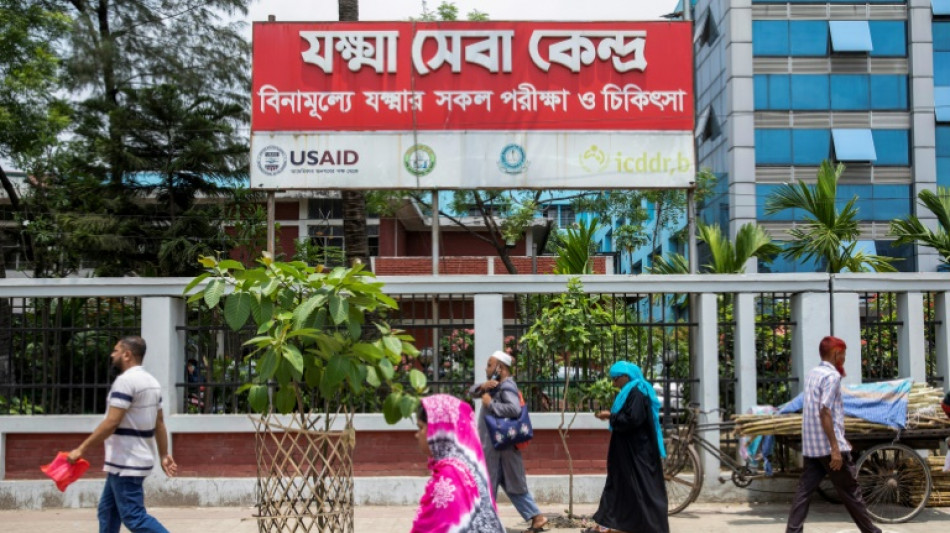
-
 Jokic-inspired Nuggets stun Thunder, Knicks down Celtics
Jokic-inspired Nuggets stun Thunder, Knicks down Celtics
-
India's woman fighter pilot trailblazer eyes space

-
 'Shared dream': China celebrates Zhao's world snooker breakthrough
'Shared dream': China celebrates Zhao's world snooker breakthrough
-
Wait for Vatican white smoke fires up social media

-
 Sinner leading the charge in golden era for Italian tennis
Sinner leading the charge in golden era for Italian tennis
-
Donnarumma stands tall on PSG's Champions League run

-
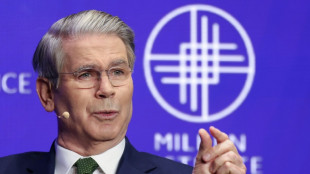 Dollar recovers some losses, stocks gain as traders eye tariff deals
Dollar recovers some losses, stocks gain as traders eye tariff deals
-
US aid cuts push Bangladesh's health sector to the edge
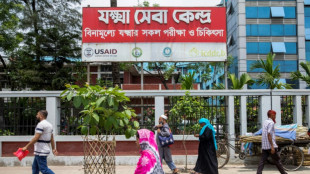
-
 Prayers, pride in Philippine papal contender's hometown
Prayers, pride in Philippine papal contender's hometown
-
Germany's Merz to launch new govt in times of Trump turbulence
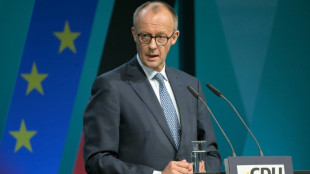
-
 Brunson sparks Knicks in comeback win over Celtics
Brunson sparks Knicks in comeback win over Celtics
-
All roads lead to Rome Open for Sinner after doping ban

-
 French Resistance members reunited 80 years after end of WWII
French Resistance members reunited 80 years after end of WWII
-
Arsenal must 'stick together' in PSG showdown: Odegaard

-
 New Zealand PM proposes banning under-16s from social media
New Zealand PM proposes banning under-16s from social media
-
Rihanna reveals third pregnancy on Met Gala night

-
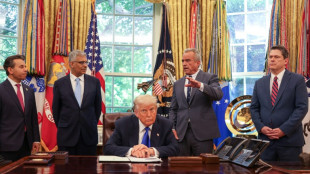 Trump orders curb on virus research he blames for Covid pandemic
Trump orders curb on virus research he blames for Covid pandemic
-
'Makes no sense': Hollywood shocked by Trump's film tariffs announcement

-
 First day of jury selection wraps in Sean Combs sex crimes trial
First day of jury selection wraps in Sean Combs sex crimes trial
-
Dominican Republic reports sharp rise in Haitian migrant deportations
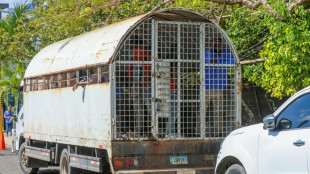
-
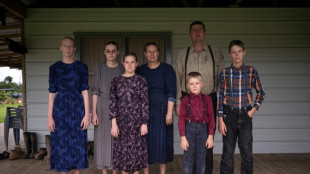 Mennonite communities raise hackles in Peruvian Amazon
Mennonite communities raise hackles in Peruvian Amazon
-
Dominican Republican reports sharp rise in Haitian migrant deportations
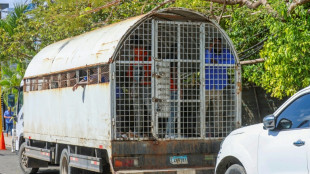
-
 Stars shine at Met Gala, showcasing Black dandyism
Stars shine at Met Gala, showcasing Black dandyism
-
Ireland captain Doris doubtful for Lions tour due to shoulder injury

-
 Pentagon chief orders 20% cut in number of top officers
Pentagon chief orders 20% cut in number of top officers
-
'New superstar' Zhao's world title heralds Chinese snooker revolution

-
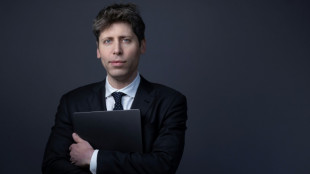 OpenAI abandons plan to become for-profit company
OpenAI abandons plan to become for-profit company
-
Ford sees $1.5 bn tariff hit this year, suspends 2025 forecast

-
 Snooker star Zhao: from ban to Chinese sporting history
Snooker star Zhao: from ban to Chinese sporting history
-
Zhao makes history as China's first World Snooker champion

-
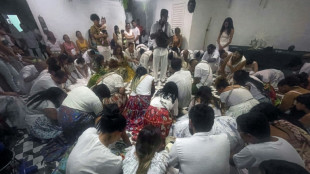 Brazilian ritual root gets second life as potential anti-depressant
Brazilian ritual root gets second life as potential anti-depressant
-
Israel says 'most' Gazans to be displaced in expanded operation
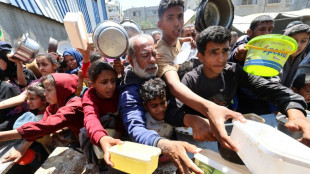
-
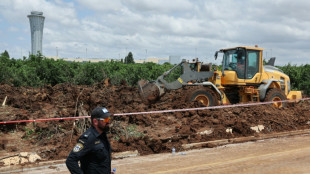 Israel strikes Yemen after Huthi attack on Ben Gurion airport
Israel strikes Yemen after Huthi attack on Ben Gurion airport
-
'It's time': Popovich passes Spurs torch to Johnson

-
 Cummins heroics in vain as rain forces Hyderabad out of IPL playoff race
Cummins heroics in vain as rain forces Hyderabad out of IPL playoff race
-
Huthis say US, Israel bomb Yemen after strike on Israeli airport
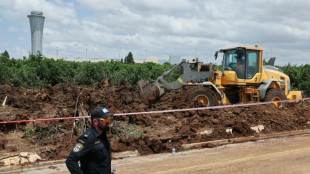
-
 Lewandowski on bench for Barca's showdown with Inter, says coach Flick
Lewandowski on bench for Barca's showdown with Inter, says coach Flick
-
Pricing birdsong: EU mulls nature credits to help biodiversity

-
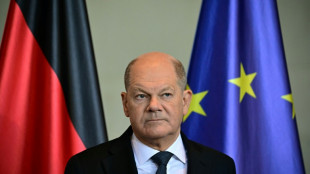 Scholz vows continued German support in last call with Zelensky
Scholz vows continued German support in last call with Zelensky
-
UK kicks off party to mark 80 years since end of WWII

-
 Global film industry reels from Trump tariff announcement
Global film industry reels from Trump tariff announcement
-
Cardinals assemble to elect pope and set course for church

-
 Meta content moderator cuts over 2,000 jobs in Spain: union
Meta content moderator cuts over 2,000 jobs in Spain: union
-
Pakistan conducts second missile test, India readies civil defence drills
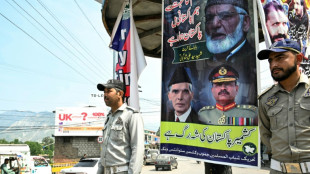
-
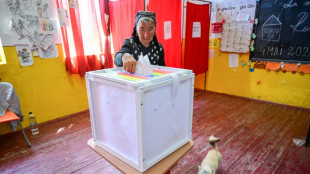 Pro-EU or pro-Trump? Romania faces decisive choice in vote
Pro-EU or pro-Trump? Romania faces decisive choice in vote
-
Nazi surrender site sets the scene for Wim Wenders short film

-
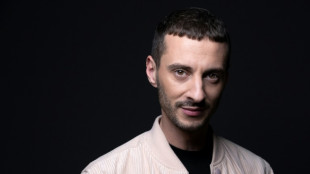 French court backs Olympics choreographer in cyberbullying case
French court backs Olympics choreographer in cyberbullying case
-
Romania run-off pits pro-Trump nationalist against centrist mayor
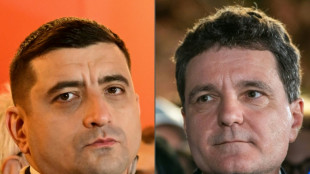
-
 South Africa's Rabada back in IPL after serving drug ban
South Africa's Rabada back in IPL after serving drug ban
-
Pride and excitement as UK crowds celebrate 80 years since WWII's end


US aid cuts push Bangladesh's health sector to the edge
Bangladesh hoped to celebrate progress towards eradicating tuberculosis this year, having already slashed the numbers dying from the preventable and curable disease by tens of thousands each year.
Instead, it is reeling from a $48 million snap aid cut by US President Donald Trump's government, which health workers say could rapidly unravel years of hard work and cause huge numbers of preventable deaths.
"Doctors told me I was infected with a serious kind of tuberculosis," labourer Mohammed Parvej, 35, told AFP from his hospital bed after he received life-saving treatment from medics funded by the US aid who identified his persistent hacking cough.
But full treatment for his multidrug-resistant tuberculosis requires more than a year of hospital care and a laborious treatment protocol -- and that faces a deeply uncertain future.
"Bangladesh is among the seven most TB-prevalent countries globally, and we aim to eradicate it by 2035," said Ayesha Akhter, deputy director of the formerly US-funded specialised TB Hospital treating Parvej in the capital Dhaka.
Bangladesh had made significant progress against the infectious bacteria, spread by spitting and sneezing, leaving people exhausted and sometimes coughing blood.
TB deaths dropped from more than 81,000 a year in 2010, down to 44,000 in 2023, according to the World Health Organization, in the country of some 170 million people.
Akhter said the South Asian nation had "been implementing a robust programme", supported by the US Agency for International Development (USAID).
"Then, one fine morning, USAID pulled out their assistance," she said.
- Starving children -
More than 80 percent of humanitarian programmes funded by USAID worldwide have been scrapped.
Tariful Islam Khan said the International Centre for Diarrhoeal Disease Research Bangladesh (ICDDR,B) had, with US funding, carried out mass screening "improving TB case detection, particularly among children" from 2020 to 2024.
"Thanks to the support of the American people... the project has screened 52 million individuals and diagnosed over 148,000 TB cases, including 18,000 children," he said.
Funding cuts threatened to stall the work.
"This work is critical not only for the health of millions of Bangladeshis, but also for global TB control efforts," he said.
Growing rates of infectious diseases in one nation have a knock-on impact in the region.
Cuts hit further than TB alone.
"USAID was everywhere in the health sector," said Nurjahan Begum, health adviser to the interim government -- which is facing a host of challenges after a mass uprising toppled the former regime last year.
US aid was key to funding vaccines combatting a host of other diseases, protecting 2.3 million children against diphtheria, measles, polio and tetanus.
"I am particularly worried about the immunisation programme," Begum said.
"If there is a disruption, the success we have achieved in immunisation will be jeapordised."
Bangladeshi scientists have also developed a special feeding formula for starving children. That too has been stalled.
"We had just launched the programme," Begum said. "Many such initiatives have now halted".
- Pivot to China -
US State Department official Audrey M. Happ said that Washington was "committed" to ensuring aid was "aligned with the interests of the United States, and that resources are used as effectively and efficiently as possible".
Bangladesh, whose economy and key garment industry are eyeing fearfully the end of the 90-day suspension of Trump's punishing 37 percent tariffs, is looking for other supporters.
Some Arab nations had expressed interest in helping fill the gap in Muslim-majority Bangladesh.
China, as well as Turkey, may also step into Washington's shoes, Begum said.
Jobs are gone too, with Dhaka's Daily Star newspaper estimating that between 30,000 and 40,000 people were laid off after the United States halted funding.
Zinat Ara Afroze, fired along with 54 colleagues from Save the Children, said she worried for those she had dedicated her career to helping.
"I have seen how these projects have worked improving the life and livelihoods of underprivileged communities," she said, citing programmes ranging from food to health, environmental protection to democracy.
"A huge number of this population will be in immediate crisis."
- Babies dying -
Those with the least have been hit the hardest.
Less dollars for aid means more sick and dead among the Rohingya refugees who fled civil war in their home in neighbouring Myanmar into Bangladesh since 2017.
Much of the US aid was delivered through the UN's WHO and UNICEF children's agency.
WHO official Salma Sultana said aid cuts ramped up risks of "uncontrolled outbreaks" of diseases including cholera in the squalid refugee camps.
Faria Selim, from UNICEF, said reduced health services would impact the youngest Rohingya the hardest, especially some 160,000 children under five.
Hepatitis C, with a prevalence rate of nearly a fifth "is likely to increase in 2025", Selim said.
Masaki Watabe, who runs the UN Population Fund (UNFPA) in Bangladesh working to improve reproductive and maternal health, said it was "trying its best to continue".
Closed clinics and no pay for midwives meant the risk of babies and mothers dying had shot up.
"Reduced donor funding has led to... increasing the risk of preventable maternal and newborn deaths," he said.
W.Huber--VB
